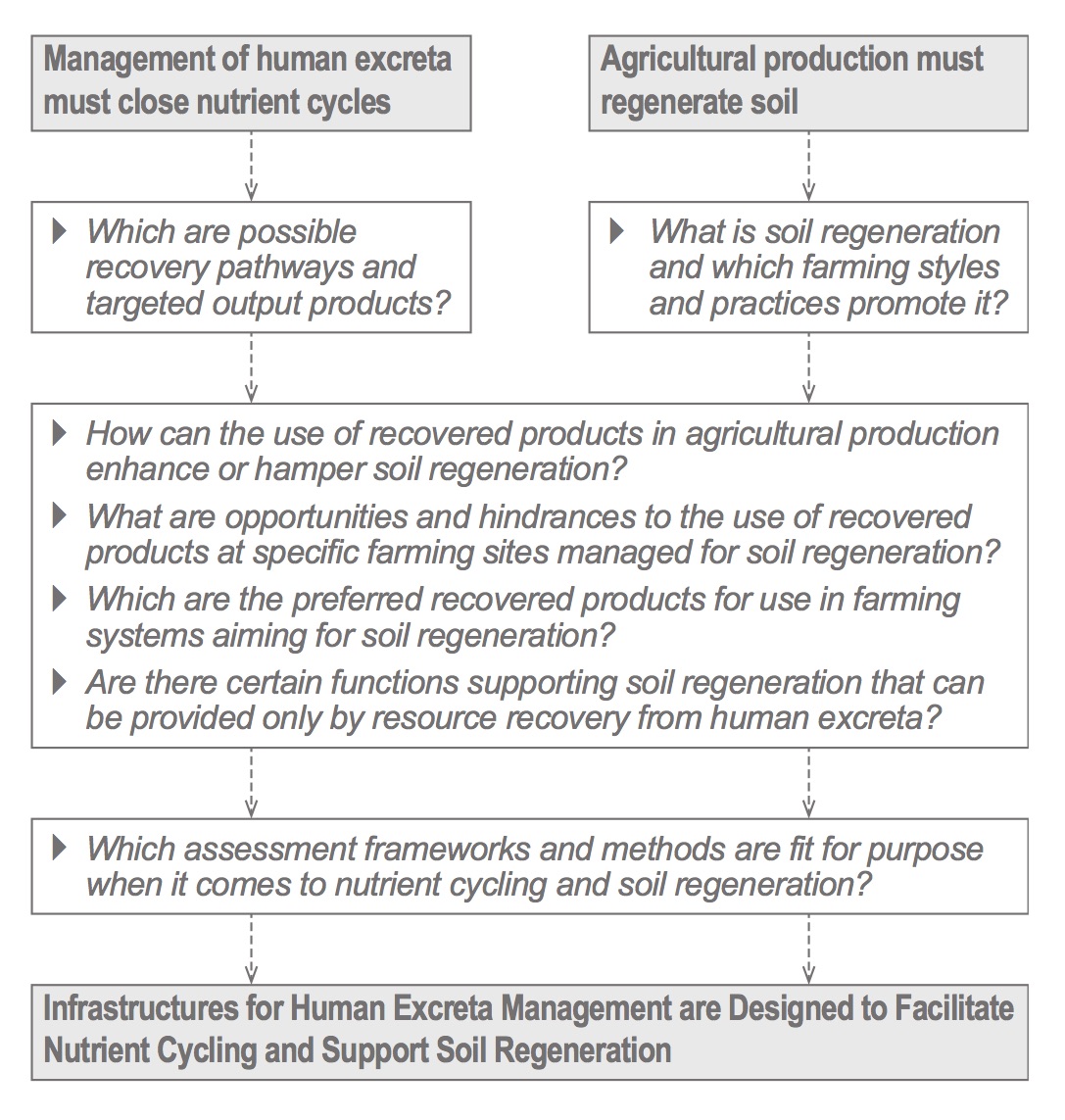Managing Human Excreta to Support Soil Regeneration
Contact: Dr. Robin Harder
Background
Healthy soils are crucial for the provision of food. Soil degradation is a serious threat to long-term agricultural productivity. Sustaining agricultural productivity also requires that the nutrients taken up by crops are replenished. Currently, global food production largely relies on nutrients mined from finite reserves or produced with fossil fuels. Recovering nutrients contained in human excreta can make important contributions to more circular nutrient flows and improved food security. In recent years, a broad variety of technological options have become available to this end. Soil regeneration, however, has generally not been a primary objective in these developments. There is a need to identify opportunities and best practices to better align the management of human excreta with the needs of long-term soil fertility and health.
Purpose
This research asks: how can the recycling of nutrients contained in human excreta to food production best support farming systems and practices that regenerate rather than impoverish agricultural soil and landscapes? Is a focus on phosphorus and possibly nitrogen and potassium sufficient, or do we also need to address micronutrients and organic matter in order to enable long-term soil fertility and health? The aim is to help key actors shaping the future management of human excreta to better leverage the knowledge base and debates surrounding both nutrient recycling and soil regeneration.
Approach

This research does not attempt to provide a single definitive answer or best solution. Rather, it aims to expose the often implicit preferences and assumptions associated with different options to recycle nutrients contained in human excreta to food production and regenerate soil, as well as with different assessment tools used to find the best option in a given context. Different perspectives and aspects will be explored using a mixed methods approach guided by a range of questions at the intersection between nutrient recycling and soil regeneration. Specific methodological choices will be made as the research project proceeds.
Outcomes
There is currently a window of opportunity to incorporate the needs of soils into the design of infrastructure for managing human excreta. Bringing forth different perspectives should allow for a more nuanced understanding of potential leverage points, discrepancies, and blind spots in the knowledge base and debates surrounding nutrient recycling and soil regeneration. Hopefully, this will promote infrastructure that is designed to facilitate both nutrient recycling and soil regeneration, assessment tools that adequately capture aspects of both nutrient recycling and soil regeneration, and an awareness that this is important.
This research project has received funding from the Swedish Research Council for Environment, Agricultural Sciences and Spatial Planning (Formas) through a mobility starting grant for young researchers for the period 2017 to 2020 (grant agreement 2016-00859). The research is conducted at Chalmers University of Technology (Environmental Systems Analysis, hosted by Dr. Sverker Molander), the University of British Columbia (Institute for Resources, Environment and Sustainability, under the supervision of Dr. Gunilla Öberg; and Sustainable Agricultural Landscapes Laboratory, under the supervision of Dr. Sean Smukler), and the Swiss Federal Institute for Aquatic Science and Technology (Environmental Social Sciences, hosted by Dr. Bernhard Truffer).
Funding
This research project has received funding from the Swedish Research Council for Environment, Agricultural Sciences and Spatial Planning (Formas) through a mobility starting grant for young researchers for the period 2017 to 2020 (grant agreement 2016-00859).